In August, Wayves asked you what you'd like us to ask the mayoral candidates. So we asked the candidates. We heard back from: Bob Anders, Riley Murphy, Ryan Dodge, Jim Hoskins, David Boyd, Waye Mason, Sean Dibbin, Pam Lovelace, Greg Frampton and Andy Fillmore.
Note that online voting ends early on October 16! The in-person election's on October 19; links to how to register and how to vote online and in person are below.
Given the current anti-trans and Q community backlash how are you committed to staying with us through thick and thin?

Riley Murphy: I believe the current council has been doing a fine job to support the community. As your mayor I will always keep my door open to learn about concerns and provide a safe space in government for all. No one should be left out of any conversation and everyone deserves to feel supported by all levels of government.
Ryan Dodge: I am committed to supporting and standing with the trans and LGBTQ+ community through all challenges. I believe in the importance of inclusivity, acceptance, and equal rights for all individuals. I will work tirelessly to advocate for policies and initiatives that protect and uplift the trans and LGBTQ+ community. Also, I see there's a No Space for Hate event on Friday. My schedules pretty open, so I may join in.
Jim Hoskins: I believe that equality is the driving factor behind all the years I have been in Public Service and my latest attempt to get at the so called table, Municipal Council is my commitment to deliver equality to every human being.
David Boyd: I’m really sorry to hear about the backlash and challenges the LGBTQ+ community is facing in Halifax. It’s important to stand together during such times. I am committed to providing support, information, and a safe space for everyone, regardless of the circumstances. Whether it’s sharing resources, offering a listening ear, or helping with specific tasks, I’m here to assist you through thick and thin.
Waye Mason: I’ve been an active ally of the queer community since Brenda Barnes, then the Current Affairs coordinator at CKDU, assigned me to be the technician of “The Word is Out,” the station's queer radio news show. That was 1990. I supported that show for several years, and that was how I met people like Jane Kansas, Dan Sheddon, Michael Wile, Dan Hart, and so many other leaders of the Q community at that time. I have shown up and spoken up ever since, and I will always, always be there to fight for the right to love people as you wish, and to oppose discrimination in all its forms.
[editor: here's links into the Halifax Rainbow Encyclopedia: Brenda Barnes, The Word Is Out, Jane Kansas, Dan Sheddon, Michael Wile, Dan Hart]
Sean Dibbin: I’m committed to standing behind anyone regardless how they identify themselves. Because everyone haves the same opportunities in life.

Pam Lovelace: As you well know, fear of the Q community is rooted in ignorance. Given that fact, as Mayor, I will continue to do my part in raising awareness by recognizing events such as Transgender Awareness Week, Transgender Day of Remembrance and Halifax Pride, as well as continuing to offer tangible things such as financial support for the annual Pride Festival. Halifax has been a leader in recognizing the contributions of the Q community to the life and culture of the municipality. I will not only continue that tradition, I will build on it. I will also ensure the lines of communication are maintained between the Q community and the Halifax Regional Policing Services. There’s no room in this municipality for hatred. I have been, and will continue to be, fully supportive of the kinds of measures that need to be put in place in order to foster a safe and accepting environment for people of all genders and sexual orientations.
Greg Frampton: I believe people should be allowed to live as they choose without fear or intimidation regardless of any circumstances. As Mayor I will repeat this message.
Bob Anders: I have to preface these questions: this is the first interview I've done, and it's only the second time I've answered a questionnaire. Like I said on my website, it's not so much that we need more ideas, we need to actually do the things we're going to do. I'm sharp and I'm good at listening to people, understanding what they're saying and clarifying it. About this question, though, I'm very committed to sticking with your community. Hate will not be tolerated!
Andy Fillmore: Throughout my tenure as MP for Halifax, I have strived to be a steadfast ally to the 2SLGBTQIA+ community and that won't change if I'm elected Mayor. I’ve shared before that one of my proudest moments as a Member of Parliament was to stand up in the House of Commons and vote in favour of the historic trans rights bill, C-16, which protects Canadians from discrimination on the basis of gender identity or gender expression But make no mistake, the fight to end discrimination is not over and a lot of hard work still needs to be done. Halifax has a storied history of 2SLGBTQIA+ activism, institutions, and community organization, and I believe that history needs to be honoured and serve as an inspiration for future fights for equality and equity.
What are your thoughts on homeless people living in parks?
Riley Murphy: No one should be living on or near the streets. We need to look out for all of our residents and make sure they have a warm safe place to live and sleep. As your mayor, I will work with the province to build more housing faster and provide support for our most vulnerable. The fact that we're placing them in parks with little resources as the weather gets colder frustrates me. These individuals deserve better. I do have a plan that will reduce the number of people living on or near the streets. As your mayor I will work with all levels of government to roll it out.
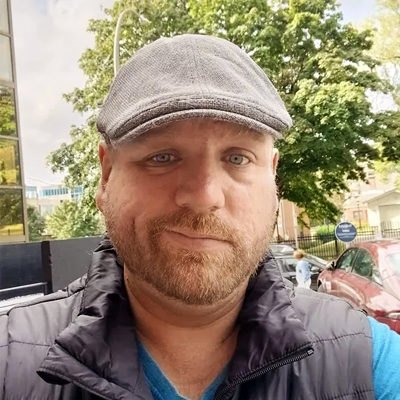
Ryan Dodge: Homelessness is a complex issue that requires empathy and a comprehensive approach. While living in parks is not an ideal situation, it is often a symptom of larger systemic problems such as lack of affordable housing and support services. I am dedicated to working towards solutions that provide safe and dignified housing options for homeless individuals, while also ensuring access to necessary resources and support systems.
Jim Hoskins: Homeless in parks should not be accepted and instead there should be a stronger effort by HRM Council to look for housing and not grass to pitch a tent.
The public needs to be on board with assisting the homeless in tents, and intruding in public parks, etc. creates unnecessary backlash.
Therefore I am the only candidate who if elected will own this issue and declare an emergency crisis like Toronto and other cities. There needs to be less managing the blame game and more finding solutions instead.
David Boyd: Addressing homelessness is a complex and urgent issue that requires compassion, understanding, and effective solutions. As a mayoral candidate, my thoughts on homeless people living in parks in Halifax would focus on several key points: • Human Dignity and Safety: Everyone deserves a safe and dignified place to live. While parks can provide temporary shelter, they are not a sustainable solution. Ensuring the safety and well-being of those experiencing homelessness is paramount. • Supportive Services: It’s crucial to provide access to supportive services, including mental health care, addiction treatment, and job training. These services can help individuals transition from homelessness to stable housing. • Affordable Housing: Increasing the availability of affordable housing is essential. This includes both short-term emergency shelters and long-term housing solutions. Collaborating with non-profits, developers, and other stakeholders can help create more housing options. • Community Engagement: Engaging with the community to address concerns and foster understanding is important. This includes addressing misconceptions and ensuring that public spaces remain accessible and safe for everyone. • Policy and Advocacy: Advocating for policies at the municipal, provincial, and federal levels that address the root causes of homelessness, such as poverty, lack of affordable housing, and inadequate mental health services, is critical.
Recent reports have highlighted the challenges and controversies surrounding homeless encampments in Halifax parks. For example, the Halifax Regional Municipality closed encampments in Victoria Park and Grand Parade earlier this year, citing health and safety concerns. However, a subsequent report found no soil contamination attributable to the encampments. This situation underscores the need for transparent and evidence-based decision-making.
Ultimately, my approach would be to work collaboratively with all stakeholders to develop compassionate and effective solutions that respect the dignity of those experiencing homelessness while addressing the concerns of the broader community.
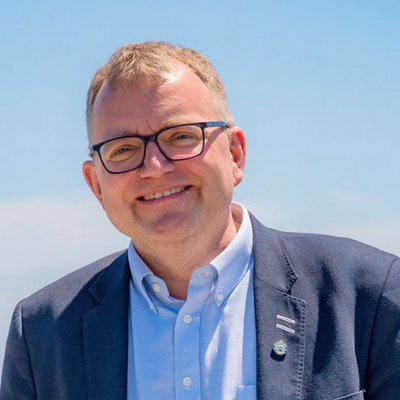
Waye Mason: We all agree: no one should live in a park. But without more housing, tenting in parks is going to happen. Any candidate that pretends otherwise — or who wants to eliminate encampments to magically end homelessness — isn’t living in reality. Our diverse communities share a responsibility to tackle the biggest issues of our time — and one of the biggest is this national housing crisis. When there is adequate, affordable, safe, and dignified housing for all these people living in tents or becoming unhoused, at that point camping in parks would end.
I believe we need to take a human rights-based approach to helping residents who are living in tents in our parks. We know that managed, designated encampments are a better solution for providing support to residents experiencing homelessness, and for keeping our communities safe. And as Mayor, I propose that Halifax establish a civilian-led response-team model to respond to issues resulting from those experiencing homelessness, mental health, addiction support, and other crises. This approach will take the police out of this type of work and help put a stop to treating people experiencing homelessness as criminals.
Sean Dibbin: It’s a sad sight seeing what's going on with the homeless: being putting in one park then another. Even though theirs isn’t a clear answer to the homeless issue. Being pushed from one place in HRM to another is not the way to treat any human being.
Pam Lovelace: It’s no secret that I voted against HRM’s plan to increase the number of designated encampment sites. I did this for many reasons, not least of which is that the municipality doesn’t have the staff it needs to keep people safe in the designated and non-designated sites that are already in place. Adding more sites spread out across a larger area will make it more difficult for provincial, municipal and emergency services staff to respond quickly. I have said this before and will say it again: encampments are not dignified housing alternatives. By approving and expanding them, governments are giving the impression they are somehow addressing the problem. It is not okay. Housing is a human right, and tents are not homes.
Greg Frampton: It's terrible. All of this is the fault of the Federal Liberal Government who mismanaged the immigration system over some years. Immigration is fine, but they let too many people in over a short period of time and our capacities cannot handle this vast influx. No one should be living in tents. I will work with the Province on the goal that no one has to sleep in a tent.
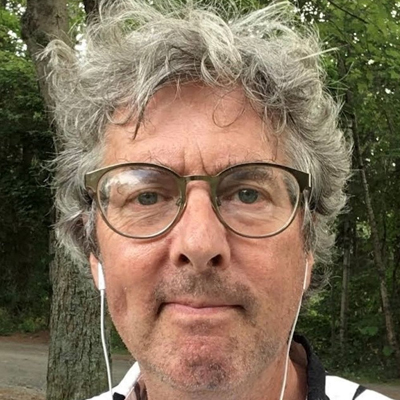
Bob Anders: This is a problem in many big cities. Homelessness is very complex. The rich are f**king over the poor. Given unlimited budget? The first thing I'd do is spend 30 days using my office to talk to everyone. I'd make a really great campground; I'm a big fan of rooming houses, I would make as many of those as we need.
Andy Fillmore: It is neither compassionate or empathetic to allow someone to live in a tent in a park - this is not a solution to homelessness, and we can do better to get people out of tents and into permanent housing. My plan would: Create a Central Intake System, updated daily in real-time, so we can reliably understand who is in the encampments, and what each person’s unique barriers are. This is the critical first step in mapping people to the support they need. • Create a rapid response team of public health, mental health, and social work professionals, including from the Province, all coordinating together on the ground to get people in the encampments the help they need. The longer people live in tents the more rapidly their mental and physical health deteriorates, so this early intervention is critical. • Freeze the approval of any new encampment sites. This includes not opening the nine new sites recently approved by HRM Council, which includes the proposed Common and Point Pleasant Park sites. Instead, HRM will work in a renewed partnership with the Province, and with the new rapid response team, to quickly move people from tents to pallet shelters, tiny homes, shelters, subsidized housing, and other durable solutions. Tents are the worst possible option for people and we can do better. • The broader community expects and deserves safe access to public parks that are not designated encampment sites. Tents appearing in undesignated areas will be greeted by the new rapid response team within 24 hours of notification so that individuals can be redirected to the support and services that they need, and to maintain residents’ access to community public spaces. I will draw on 30 years of experience as a city planner to remove roadblocks to approvals so that homes can be built faster in the right locations, and increase housing affordability across HRM.
What should Halifax do until the province and nation addresses the shortage of available housing and rental units on the market?
Riley Murphy: Right now, the council is trying to cut red tape by streamlining permits, however even that is taking too long. Permitting has also been digital for years; however, there are too many roadblocks to make this efficient. As your mayor, I will personally chair meetings on these issues and oversee progress to get us on track and build housing faster. I would also propose incentives to those who charge affordable rent, and work to reduce property tax for seniors, young families, and those with low-income.
Ryan Dodge: In the face of a housing shortage, Halifax can take immediate steps to address the crisis by implementing temporary housing solutions, collaborating with community organizations to provide shelter options, and advocating for increased funding for affordable housing initiatives. Additionally, promoting development that includes affordable housing units and streamlining approval processes can help alleviate the shortage in the short term.
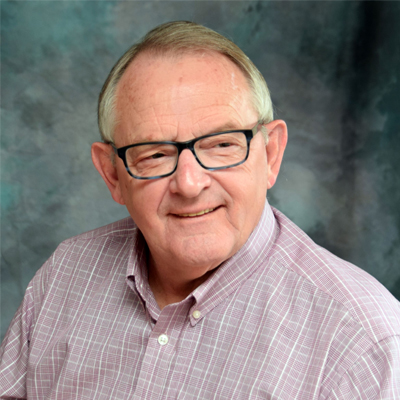
Jim Hoskins: Halifax Council needs to find more buildings and vacant properties and purchase them if possible and I would support spending more tax dollars and suspending other projects over the most important crisis now in HRM being homelessness.
David Boyd: Addressing the housing shortage in Halifax requires immediate and innovative local solutions while waiting for broader provincial and national measures. Here are some steps that could be taken: Temporary Housing Solutions: Utilize vacant buildings and spaces for temporary housing. This could include converting unused commercial properties, hotels, or modular housing units to provide immediate shelter. • Incentivize Development: Offer incentives to developers to build affordable housing. This could include tax breaks, grants, or expedited permitting processes to encourage the construction of new units. • Public-Private Partnerships: Collaborate with private developers, non-profits, and community organizations to create mixed-income housing projects. These partnerships can leverage different resources and expertise to address the housing crisis more effectively. • Supportive Housing Programs: Expand programs that provide not just housing but also support services such as mental health care, addiction treatment, and job training. This holistic approach can help individuals maintain stable housing. • Rent Control and Assistance: Implement or expand rent control measures to prevent excessive rent increases and provide rental assistance to low-income residents to help them afford existing housing. • Community Engagement: Engage with the community to gather input and support for housing initiatives. Transparency and collaboration can help address concerns and build consensus around proposed solutions. • Emergency Funds: Allocate emergency funds to address immediate housing needs, such as providing emergency shelters and supporting organizations that work with homeless populations.
These steps can help mitigate the housing crisis in Halifax while waiting for larger-scale solutions from the province and federal government.
Waye Mason: As Mayor, Day One, I will work fast to create an environment where more affordable housing options are available by improving access to already-existing public housing units and working to increase the supply of below-market, rapid-build housing by incentivizing and investing in low-cost construction, such as modulars, pre-fabs, sea cans, backyard suites, and tiny homes. I will also look at reducing red tape for the construction industry and speeding up permitting processes.
I firmly believe the municipality can do more — that is why I am proposing that Halifax take back control of housing from the province with the creation of Housing Halifax, an arm’s-length agency that will partner with not-for-profit, co-op, and private sector developers, as well as private home owners, to build and operating housing projects.
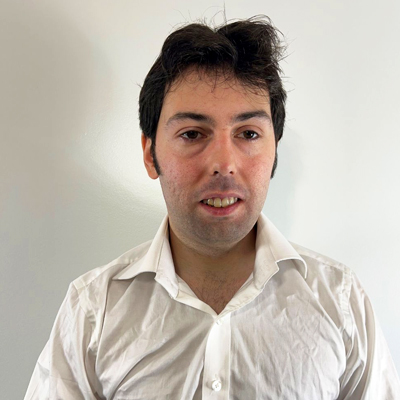
Sean Dibbin: What Halifax can do about the housing crisis at the moment in my opinion is to try having meetings with the other mayors in the province and discuss the matter while also encouraging the key players from the province and federal government to join in and address the problem.
Pam Lovelace: I firmly believe homelessness is a health care issue. As such, HRM's policies need to focus on a compassion-based approach that recognizes the complexity of the situation. In August 2021, I initiated the Lived Experience Advisory Committee on Homelessness and in May 2022, I worked to establish Memorandum of Understanding (MOU) with the province to tackle homelessness. My plan emphasizes the "Housing First" model, a model that emphasizes rapid rehousing without preconditions, and with support services, such as mental health care, addictions treatment, and job training. However, HRM can’t do it alone. We need to foster partnerships with provincial and federal governments so we can leverage the Lived Experience Advisory knowledge base, and expand affordable housing initiatives. I will work to reduce the barriers that keep individuals unhoused and ensure every Haligonian has access to safe, stable housing.
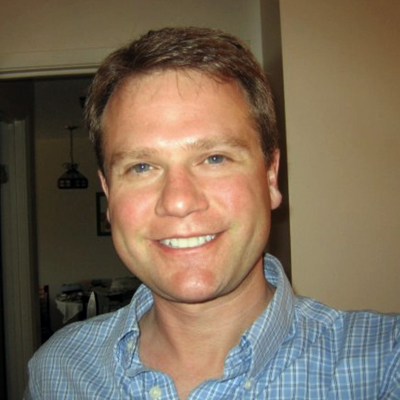
Greg Frampton:I would like to see, and will approve, more suburban real estate development so that people can have a home of their own and have equity rather than be eternal tenants paying rent. Most of these new apartment buildings you see going up are not affordable. Also it would be nice to see the Province invest in more housing.
Andy Fillmore: When it comes to building homes, HRM is stretching approval times unnecessarily. Affordable home construction techniques can reduce costs, and HRM is not allowing the most affordable techniques. HRM is holding up approval of some of the most affordable land in the municipality (some of which have been seeking approval for 9+ years). My plan would: Speed Up Approvals: We will quickly approve more homes in the right locations across HRM that are lower in cost than what is available on the market right now. • We will use technology, automation, and redirection of human resources to rapidly issue building permits, and speed up response times for questions from applicants. • In exchange for rapid approvals, builders will build homes faster and at a lower price. Builders will also be incentivized to work with non-profit housing providers to create non-market housing units. Working with a non-profit partner won’t make sense on every project, but where it does, we will expect the private sector to work in good faith with our community housing sector. Shovels will be in the ground on an accelerated timeline or the permits and agreements will be revoked. Expand Permitted Construction Techniques: We will update planning rules to allow for the approval of thousands of new homes using prefabricated, modular, flat-packed, containerized, and mass timber homes to be quickly deployed in HRM. We will work with the Province of Nova Scotia to update the Building Code to remove barriers to innovative construction techniques. • Unlock More Land for Housing: There have been applications to make low-cost land available for housing for as long as nine years. Approving such land can reduce the cost of a new home by double digits. HRM will approve the low-cost land in these application backlogs. We will re-establish the Opportunity Sites Task Force (which I created when I was a planner at HRM) to identify serviced and unserviced land for future housing, and work with landowners, municipalities, builders, and government to identify and remove the barriers that have kept housing from being built on that land. This will include analyzing existing buildings in HRM ownership that could be converted into housing. We will conduct a strategic review of the municipal service boundary, which controls where municipal sewer and water are provided, to determine where strategic expansions are needed. As Mayor, I will put to work my existing positive relationships with the Province of Nova Scotia, the Government of Canada, and the home building sector in HRM to apply to available substantial housing infrastructure funds to build the sewer, water, roads, sidewalks, and trails necessary to support new housing developments. Support Community Housing and Small Developers: Create a help desk to give community housing organizations and smaller developers access to city planners to give them the information and support they need throughout the planning and building process. • Create new self-serve tools to allow smaller-scale projects and community housing organizations to plan their applications quicker and more effectively. • Ensure Accountability/Culture Change: Create a Housing Delivery Team (HDT) of existing staff to coordinate all planning, development and building permit applications. It will be this team’s job to get approvals out the door. The HDT will track application volumes and timelines, and work closely with the province to remove barriers and unlock opportunities. • Regular Updates: This team will report monthly to the City Council, updating them on progress, challenges, and recommendations to overcome them.
And, public transit: how will you improve it?
Riley Murphy: People don't feel safe taking transit, and no one thinks it's reliable. Our drivers are leaving because they fear for their safety. As your mayor, I will implement improved lighting, surveillance, and security measures at transit stops and on vehicles. Accessibility will be at the forefront, with every transit service and facility designed to accommodate people with disabilities. Sustainability is not just a goal; it’s a commitment. By investing in eco-friendly transit options and incorporating sustainable design elements into our projects, we will reduce our carbon footprint and protect our beautiful environment for future generations. Our transit infrastructure is the foundation of our system. I will ensure that we allocate resources to upgrade and maintain our bus stops, shelters, and transit hubs. Modernizing dedicated bus lanes and traffic signal priority systems will reduce delays and improve service efficiency.
Ryan Dodge: Improving public transit is essential for enhancing accessibility, reducing traffic congestion, and promoting sustainability. To enhance public transit in Halifax, I plan to invest in expanding routes, increasing frequency of service, implementing technology for real-time tracking, improving accessibility for all individuals, and prioritizing eco-friendly transportation options. Collaborating with stakeholders and conducting regular community feedback sessions will be key in developing a transit system that meets the diverse needs of Halifax residents.
Jim Hoskins: Our transit system is not being used effectively and is probably going to get worse unless more staff and routes are implemented. No one should be waiting for a bus in HRM longer than 15 minutes.
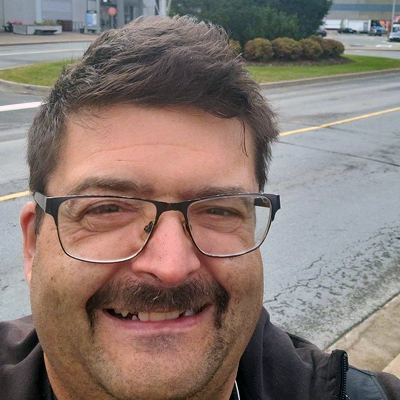
David Boyd: Improving public transit in Halifax is crucial for enhancing mobility, reducing traffic congestion, and supporting environmental sustainability. Here are some key initiatives I would focus on as a mayoral candidate: Expand Rapid Transit: Implement the Rapid Transit Strategy, which includes four Bus Rapid Transit (BRT) lines and three new ferry routes. This will provide faster, more reliable transit options and better connect different parts of the city. • Electric Buses: Transition to a zero-emission bus fleet by investing in electric buses. This will reduce greenhouse gas emissions and contribute to a cleaner environment. • Increase Frequency and Coverage: Improve the frequency of bus services, especially during peak hours, and expand coverage to underserved areas. This will make public transit a more viable option for more residents. • Improve Infrastructure: Enhance transit infrastructure, including more bus shelters, dedicated bus lanes, and park-and-ride facilities. This will make using public transit more convenient and comfortable. • Affordable Fares: Ensure that transit fares remain affordable, and explore options for fare subsidies for low-income residents. This will make public transit accessible to everyone • Community Engagement: Engage with the community to gather feedback and ensure that transit improvements meet the needs of residents. Transparency and collaboration are key to successful transit planning. • Integrated Mobility: Promote integrated mobility solutions that combine public transit with other forms of transportation, such as cycling and walking, to create a seamless and efficient transportation network.
By focusing on these initiatives, we can create a more efficient, sustainable, and user-friendly public transit system in Halifax.
Waye Mason: I have a comprehensive transit plan in my platform, which can be found at www.masonformayor.ca. We need to ease congestion for people using buses, trucks, and cars by establishing a traffic operations centre that will monitor, in real time, road conditions and respond accordingly. Right now, no one is watching to see whether Bayers Road or Larry Uteck is backed up! Here are some other highlights: Establish 24/7 transit service with maximum 30-minute off-peak wait times and faster peak frequency on key corridor routes. • Increase the frequency of the airport bus to every 30 minutes. • Speed up commutes and daily trips by reorganizing Halifax Transit corridor, local, and express routes around proposed Bus Rapid Transit routes and by prioritizing investment in bus lane construction. • Save seniors money by establishing a free seniors’ off-peak bus pass to be phased in by adding an additional day per week annually. • Improve Halifax Transit service to under 18s by expanding the free student bus program to all students. • Make travel cheaper by allowing transfers between community transit (in rural communities) and Halifax Transit.
Sean Dibbin: My point of view to improve public transit is push for it to expand to more areas of HRM and work with the communities that do have the service and get their feed back on aspects that they feel needs attention.
Pam Lovelace: I’m not going to sugar coat it; Halifax Transit is broken. The whole system, including Access-A-Bus, isn't meeting the needs of our communities. My plan is to get started on an initiative to build light rail. HRM is home to half the population of the province and it is growing exponentially. We have to think bigger. I plan to implement Park & Ride express routes in partnership with neighbouring municipalities and growing rural communities in HRM to reduce traffic congestion and connect our communities better. These are my thoughts in brief, Dan. For more details, you can visit my website at: pamlovelace.ca for a more comprehensive look at my platform.
Greg Frampton: I would like to see more routes, more buses, better tech for scheduling and a satisfied staff.
Bob Anders: Blue sky? I'd look into shuttles - that would go around like a cab, sixteen people at a time. Maybe you don't need buses going every which way.
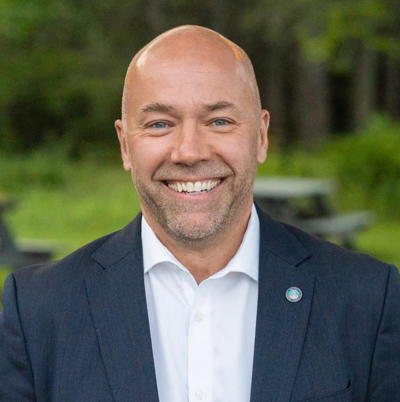
Andy Fillmore: HRM is a rapidly growing 21st-century capital city that encompasses urban, suburban, and rural communities that must be reliably interconnected. It has become too hard to move around our municipality. Extreme congestion is robbing residents and businesses of time and money, all while increasing emissions. Transit is not as reliable as it should be, which is putting more people in cars, and gridlock due to poorly-timed road construction and repairs contributes to this congestion. As Mayor, I’ll use my experience as an urban and rural planner to get our city moving again to put time and money back into residents’ pockets My plan would: Implement bus rapid transit (BRT) solutions to get people moving again. • Make Halifax Transit more reliable and put user experiences first, by analyzing transit data to identify bottlenecks, identifying under-serviced areas or routes with consistent delays and adapting them quickly to get buses moving, and creating a true tap-to-pay system to make it easier to get on a bus. This will increase ridership, ease congestion, and reduce emissions.Boost our recruitment and retention efforts for staff. • Reduce the impact of construction on traffic by getting more work done in off-peak traffic times, like nights and weekends, to make sure people can get to work and school on time.
If you received a voter information letter in the mail, you can vote in advance, online until 4:30pm on October 16th; the link and your code is there. Or you can take the letter to a voting place on election day, October 19
If you did not get a voter information letter, you can call 902.490.8683 Monday through Friday between 8:30 a.m. and 4:30 p.m. or email election@halifax.ca.
Full information on how, when, and where to vote is here.

